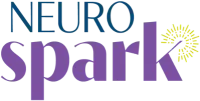The Similarities and Differences Between Autism and ADHD

Table of Contents:
Autism and ADHD differences can be confusing to tease apart, especially for those who relate to both. Many of our multiply neurodivergent clients come to us unsure how to distinguish their autism traits from their ADHD traits. The lived AuDHD experience is complex, and understanding the overlap and divergence between these neurotypes is key to accessing the right support.
Before 2012 and the DSM-5, a person couldn’t even be diagnosed with autism and ADHD at the same time. Thankfully, that’s changed, but many clinicians still don’t have the training to identify both accurately. That’s why this matters: when providers understand both autism and ADHD, care becomes more integrated, tailored, and affirming. That’s what we’re here to explore.
Understanding how autism and ADHD differ is key to getting care that supports your whole self. That’s what we’re here to explain.
📖 Read more:
The Basics of Autism and ADHD
Both autism and ADHD are neurodevelopmental conditions that often co-occur. In fact, they co-occur so frequently that the term “AuDHD” is gaining visibility within the neurodivergent community. Yet even though these conditions can overlap, they are distinct, and understanding each one clearly is the first step to clarity.
- Autism is typically characterized by differences in social communication, information processing, and patterns of restricted or repetitive behavior.
- ADHD is typically characterized by differences in attention, focus, and may include hyperactivity and impulsivity.
More than half of people diagnosed as autistic also show signs of ADHD. It’s not either/or; it can be both.
Key Similarities Between Autism and ADHD
Autism and ADHD both affect neurological development, impacting how the brain manages functions like attention, language, memory, and social interaction. This can lead to significant overlap.
Shared characteristics include:
- Differences in executive functioning
- Sensory sensitivities or differences
- Masking and camouflaging
- Social communication challenges
- Hyperfocus
- Stimming behaviors
- Academic and workplace challenges
Key Autism and ADHD Differences
Understanding how autism and ADHD diverge is just as important as knowing where they overlap. These differences can help clarify your experiences, especially if you relate to both sets of traits.
Some major differences include:
Routines
- Autistic people often prefer predictability and fixed routines. Changes can feel distressing.
- ADHDers may struggle to maintain routines consistently due to distractibility or a craving for novelty.
Sensory Differences and Stimming
- Autistic stimming is often regulatory—used for comfort or calming.
- ADHD stimming typically helps with focus, restlessness, or impulse control.
Novelty and Spontaneity
- Autistic individuals tend to prefer familiarity and sameness.
- ADHDers often seek out novelty and stimulation.
Interests and Focus
- Autistic people often have a few, deep special interests and can hyperfocus on them for long periods.
- People with ADHD may hyperfocus too, but their interests tend to change more frequently and be more varied.
Social Communication
- Autistic individuals might monologue about preferred topics or struggle with reciprocity due to information processing differences.
- ADHDers may interrupt impulsively or lose track of social cues due to inattention.
Medication
- ADHD symptoms often respond well to stimulant medication.
- Autism is not something to medicate—it’s a neurotype, not a disorder to be “treated.”
📖 Read more: ADHD vs. Autism
Get Clarity with a Dual AuDHD Assessment
It can be frustrating to navigate challenges when you’re unsure where they come from. That’s why so many adults come to NeuroSpark Health for an AuDHD assessment. We specialize in teasing apart the differences and overlap to help you understand your unique neurotype.
We also offer neurodiversity-affirming therapy and coaching from clinicians who get it. Whether you’re seeking clarity, support, or simply a space where you don’t have to explain yourself, we’re here.
Contact our team today to learn more or schedule a consultation.

Dani Rodwell, LCSW
One Spark Can Light a Fire
Diagnosis can be the catalyst for significant momentum. It can represent a turning point for your life, where you can move forward equipped with new knowledge about yourself and a new framework to guide you in your journey.
A formal assessment provides an incredible opportunity to gain knowledge about who you are and how you see the world.



